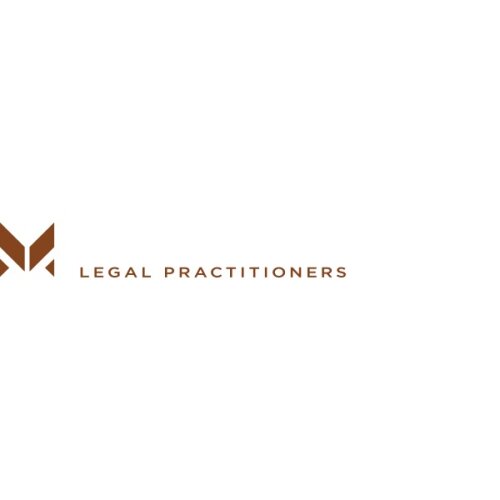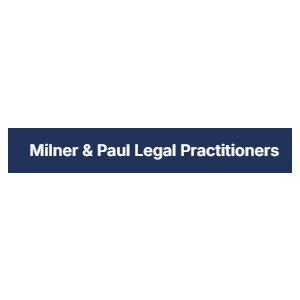Best Energy Regulatory Law Lawyers in Lusaka
Share your needs with us, get contacted by law firms.
Free. Takes 2 min.
List of the best lawyers in Lusaka, Zambia
About Energy Regulatory Law in Lusaka, Zambia
Energy Regulatory Law in Lusaka, Zambia is the branch of legal practice dedicated to overseeing, interpreting, and applying rules and regulations related to energy production, distribution, and consumption. The primary regulatory body in Zambia is the Energy Regulation Board (ERB), which sets standards and ensures compliance in the generation, transmission, distribution, and supply of energy, including electricity, petroleum, and renewable sources. The legal framework aims to ensure energy is provided efficiently, safely, and at fair prices, while balancing environmental and public interests.
Why You May Need a Lawyer
Legal challenges in the energy sector can be both complex and highly technical. Here are common situations where individuals and businesses in Lusaka might require legal assistance regarding Energy Regulatory Law:
- Obtaining licenses and permits for energy projects
- Complying with the ERB's standards and requirements
- Negotiating and drafting energy supply contracts
- Resolving disputes over tariffs, supply interruptions, or regulatory penalties
- Seeking approvals for renewable energy projects
- Addressing land use and environmental impact issues tied to energy infrastructure
- Handling mergers, acquisitions, or investment in the energy sector
- Defending enforcement actions from regulatory agencies
An experienced energy law lawyer can guide you through these processes, represent your interests before authorities, and help you avoid costly legal mistakes.
Local Laws Overview
Energy Regulatory Law in Lusaka is deeply influenced by a set of statutes and regulatory instruments. The most notable include:
- The Energy Regulation Act (Chapter 436 of the Laws of Zambia) - the principal legislation establishing the ERB and governing industry conduct
- The Electricity Act (Chapter 433) - regulates generation, distribution, and supply of electricity
- The Petroleum Act (Chapter 435) - covers importation, refining, storage, and sale of petroleum products
- The Rural Electrification Act - supports the extension of energy services to rural areas
- Environmental management legislation, which is essential when projects affect land or biodiversity
The ERB is tasked with reviewing tariff applications, issuing licenses, enforcing quality and safety requirements, and resolving complaints. Compliance with both national and international environmental and safety standards is also required for all energy projects in Lusaka. Any entity or individual providing energy services must be properly licensed and operate within the regulatory framework, or risk penalties, license suspension, or prohibition.
Frequently Asked Questions
What is the role of the Energy Regulation Board (ERB) in Zambia?
The ERB regulates the energy sector by setting standards, issuing licenses, enforcing compliance, reviewing tariffs, and resolving consumer or operator disputes to ensure fair and efficient energy provision.
What types of energy activities require a license from the ERB?
Licenses are needed for generating, transmitting, distributing, or supplying electricity, as well as refining, storing, or retailing petroleum and other energy-related services.
How are electricity tariffs set in Lusaka?
Tariffs are proposed by energy providers and reviewed by the ERB through a public consultation process, ensuring that prices are fair to both consumers and providers while covering the costs of supply.
Can individuals generate their own electricity (like solar) for personal use?
Yes, individuals can generate electricity for personal consumption. However, if you intend to supply the grid or sell excess power, you must comply with ERB licensing requirements and relevant standards.
What are the penalties for operating an energy business without a license?
Operating without a license can result in stiff penalties, including fines, confiscation of equipment, and legal action that can restrict or close your business.
Are renewable energy projects supported by Zambian law?
Yes, Zambia's laws and policies actively encourage renewable energy. The ERB has set guidelines and incentives to help integrate solar, wind, and other green energy sources into the national mix.
How can communities or consumers lodge a complaint about energy providers?
Complaints can be submitted directly to the ERB, which investigates and mediates disputes between consumers and providers, including issues of tariffs, quality, or service interruptions.
Do energy projects require environmental approvals?
Most energy projects must undergo environmental impact assessments and gain approvals from both the ERB and the Zambia Environmental Management Agency to ensure responsible development.
Can foreign investors participate in the Zambian energy sector?
Yes, foreign investors are welcome. They must comply with licensing requirements, observe local ownership or participation rules where applicable, and meet all regulatory standards.
What should I do if I receive an enforcement notice from the ERB?
You should consult a lawyer immediately to understand your rights and obligations. You may have the option to appeal, negotiate a settlement, or address compliance issues, but timely response is crucial.
Additional Resources
If you require more information or assistance regarding Energy Regulatory Law, consider contacting or consulting the following resources:
- Energy Regulation Board (ERB) - The national energy regulator offering licensing, guidance, and dispute resolution
- Zambia Environmental Management Agency (ZEMA) - For environmental approvals and impact assessments
- Ministry of Energy - The government department responsible for energy policy and overall sector oversight
- Zambia Development Agency (ZDA) - Provides investor support, including information on investing in Zambian energy projects
- Local legal aid clinics and law societies for referrals to qualified energy law practitioners
Next Steps
If you believe you need legal assistance in Energy Regulatory Law in Lusaka, Zambia:
- Identify your legal concern or the specific regulatory issue you are facing
- Gather related documentation, such as licenses, contracts, communications with authorities, or project proposals
- Reach out to a local lawyer or law firm with experience in energy law
- Contact relevant regulatory bodies (such as the ERB or ZEMA) for initial guidance if your issue relates to licensing or compliance
- Request an initial consultation to assess your options, obligations, and potential risks
- Follow professional legal advice closely to ensure compliance and to protect your interests in the Lusaka energy sector
A proactive approach and early legal advice are key to navigating the complex regulatory environment and achieving the best outcome for your energy-related matters in Lusaka, Zambia.
Lawzana helps you find the best lawyers and law firms in Lusaka through a curated and pre-screened list of qualified legal professionals. Our platform offers rankings and detailed profiles of attorneys and law firms, allowing you to compare based on practice areas, including Energy Regulatory Law, experience, and client feedback.
Each profile includes a description of the firm's areas of practice, client reviews, team members and partners, year of establishment, spoken languages, office locations, contact information, social media presence, and any published articles or resources. Most firms on our platform speak English and are experienced in both local and international legal matters.
Get a quote from top-rated law firms in Lusaka, Zambia — quickly, securely, and without unnecessary hassle.
Disclaimer:
The information provided on this page is for general informational purposes only and does not constitute legal advice. While we strive to ensure the accuracy and relevance of the content, legal information may change over time, and interpretations of the law can vary. You should always consult with a qualified legal professional for advice specific to your situation.
We disclaim all liability for actions taken or not taken based on the content of this page. If you believe any information is incorrect or outdated, please contact us, and we will review and update it where appropriate.

















